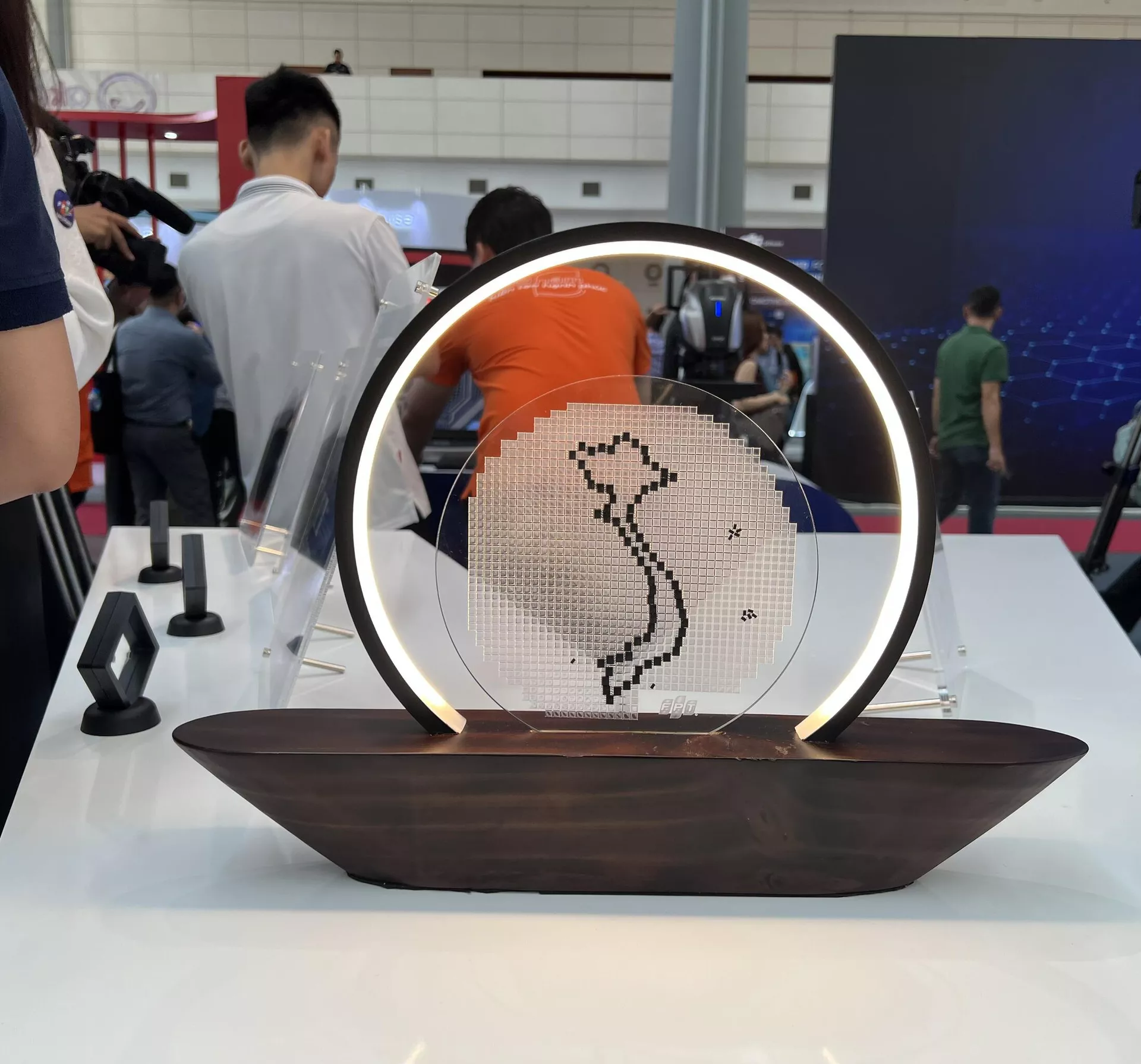The semiconductor industry in Vietnam is set to “boom” from 2024
Vietnam is like a “rising star” in the global semiconductor market. There are already some Vietnamese companies involved in chip production, such as FPT Semiconductor and Viettel. It is projected that by 2024, the semiconductor industry in Vietnam will surpass the value of 6.17 billion USD. This will be the path for Vietnam to become more deeply involved in the global semiconductor chip industry.
The “golden” opportunity

The demand for semiconductor chip design is incredibly high, as all modern technology devices and vehicles require them. The design phase currently accounts for about 60% of the entire semiconductor industry’s revenue. FPT is currently focusing its resources on the design aspect to delve deeper into the semiconductor field.
Despite only entering the semiconductor chip market a year ago, FPT Semiconductor has consistently received orders from businesses in South Korea, Japan, Taiwan, and the United States. This year, the company will introduce 7 new chip lines. By 2024, they will continue to design and produce IoT Platform chips for smart device applications, wearables, and IoT for agriculture, forestry, and aquaculture.
Regarding the opportunities for Vietnamese businesses in the semiconductor industry, in an exchange with Sputnik, Mr. Nguyen Vinh Quang, the Director of FPT Semiconductor, assessed that Vietnam will have advantages when entering the semiconductor chip market. If companies only design chips to follow the market trends, it will be challenging at this point. However, if they meet the customer’s specific needs and produce what they require, Vietnam will have a definite advantage.

“The opportunities will come in various areas. In terms of products, FPT is currently moving towards power chips. Apart from the power chip sector, Vietnamese companies can participate with certain advantages for development. For example, the IoT Platform chip sector is not yet highly developed. The opportunity is approaching as 5G is widely deployed in many countries, and IoT devices and smart home devices are flourishing. At that time, a large quantity of chip lines will be needed to meet this demand, with suitable cost and quality. In addition, there are other areas related to logistics and warehousing, and Vietnam can also become a hub for this sector worldwide, replacing Singapore or Hong Kong,” Mr. Quang explained.
Focusing on training and supplementing the workforce
Vietnam has a demand for around 150,000 IT and digital industry engineers per year, with the semiconductor sector alone requiring 5,000-10,000 engineers per year, but the capability to meet this demand is less than 20%.
The shortage of over 80% of the workforce is a significant issue that needs urgent resolution. This is evident as there are more than 50 FDI companies investing in Vietnam’s electronics and semiconductor industry.
However, when it comes to the overall quality of semiconductor technical personnel, Mr. Nguyen Vinh Quang, the Director of FPT Semiconductor, believes that Vietnam’s workforce is not inferior to the rest of the world.
In particular, FPT is opening a Semiconductor Engineering program at FPT University in 2023 to supplement the high-quality workforce that is currently in short supply, with the first batch of students expected to be enrolled in 2024.
“FPT University’s approach is to collaborate with major universities worldwide to bring programs from the United States, Japan, and Taiwan to Vietnam. This is the fastest way to introduce world-standard semiconductor training programs to Vietnam, ensuring that graduates have knowledge equivalent to students in the United States and Japan. In the next three years, FPT University will also implement master’s degree programs,” shared the Director of FPT Semiconductor.
With approximately 10,000 professionals trained by FPT in this field, one-third of them will work for companies in Vietnam, while the remaining two-thirds will have their own programs abroad and the opportunity to work internationally.
By addressing the obstacles mentioned above, we will gradually attract global technology conglomerates to establish supply chains in Vietnam, making it a leading semiconductor manufacturing hub in the region.
With the quality of Vietnamese talent that can be trained to produce semiconductor chips domestically, we can gradually attract the world’s leading technology conglomerates to establish their supply chains here. When Vietnam becomes a global chip hub, job opportunities will undoubtedly increase. This path will lead Vietnam to prosperity.



